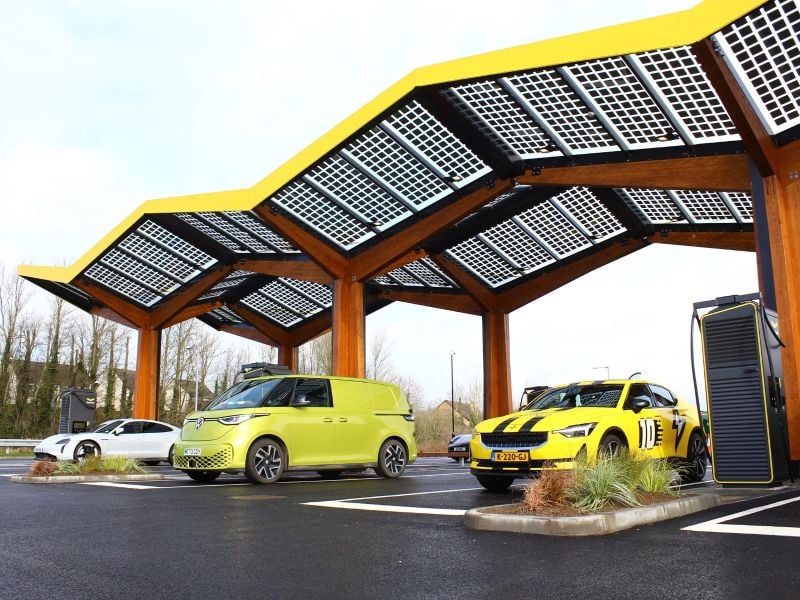Dutch EV chargepoint owner-operator Fastned has opened an ultra-rapid charging hub in Banbridge, Northern Ireland.
The 400kW hub will be powered by 100% renewable energy and is Fastned’s first move into Northern Ireland, with a second hub due to open in the country next month. The charging hub is the fastest in Northern Ireland and it features 12 charging bays. It is the Dutch company’s biggest across the UK.
The purchase and development of both the Banbridge hub and the second, which will be in Antrim, has seen an investment of over £3 million. Fastned said it has identified Northern Ireland as a key growth area.
However, as UK country director at Fastned Tom Hurst explained in a LinkedIn post, faster grid connections will be “essential” for further expansion: “Delays limit charging options and reduce confidence in the EV transition. A faster scale-up of infrastructure is needed to meet the UK government’s target of 300,000 chargers by 2030.”
So far, the UK is on track to meet the target, as EV uptake continues to rise in the UK and globally. January this year saw record numbers of new EVs registered in Ireland, with director general of the Society for the Irish Motor Industry Brian Cooke noting the importance of government incentives to stimulate the market.
The government recently announced its National Wealth Fund would invest £55 million in public charging company Connected Kerb to increase the rollout of public charging provision in answer to consumer fears that the network is insufficient to support travel by EV.
In the EU, BEV uptake also spiked during January, growing by 34% month-on-month.
The charging infrastructure underpinning this transition is rapidly improving, but the industry has pushed the government on several changes that would better support the network. These include better chargepoint signposting and a reduction in the VAT rate charged on public charging.
Analysis by EV chargepoint mapping service ZapMap showed that making the VAT rate for public EV charging 5%, the rate applied for home charging, would save money for all EV drivers; even those with at-home chargers would benefit from annual savings of £29 per year.
The current system charges VAT at 5% for domestic energy and at 20% for energy on public charging. Referred to as ‘pavement tax’, this sees those without access to at-home charging pay more per charge. This is a known issue in the EV industry and the key area of focus of the lobby group FairCharge, which campaigns for EV affordability.






